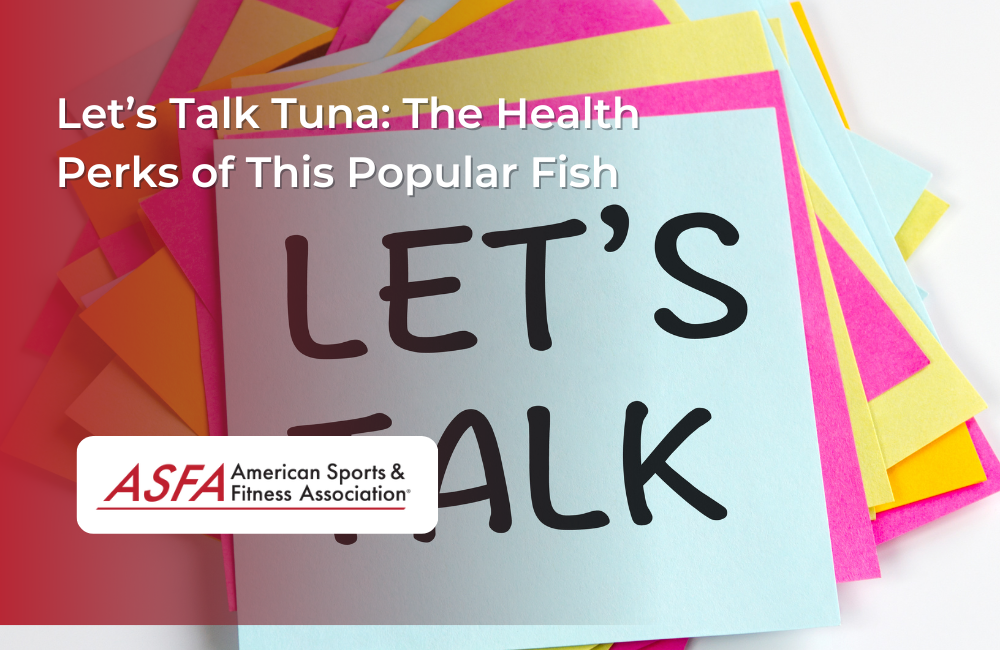While tuna is often associated with unhealthy fast food dishes and easy office lunches, it’s actually a highly nutritious fish. Tuna is rich in protein, niacin, vitamin B-12, and selenium—all nutrients that can have a positive impact on your health. You may be surprised to learn that some varieties of tuna can also help lower your risk of heart disease and stroke. In fact, eating the right kind of tuna while pregnant or breastfeeding can also reduce the risk of certain birth defects (like spina bifida). So grab yourself a can opener: here are five reasons why this popular fish should be part of your weekly diet!
Tuna is rich in niacin, vitamin B-12, and selenium
Tuna is rich in niacin, vitamin B-12, and selenium. Niacin helps your body use energy from food. Vitamin B-12 helps keep your blood healthy, supports brain function, and keeps you mentally sharp as you age. It's also important for making DNA (deoxyribonucleic acid) -- the genetic material that makes up all living organisms -- which is why it's sometimes called "vitamin DNA." Selenium helps protect cells from damage caused by free radicals (unstable atoms that can damage cells). Omega-3 fatty acids are also found in fish like tuna; these fats help reduce inflammation throughout the body and may lower risk factors for heart disease such as high cholesterol levels or triglyceride levels.
Tuna is an excellent source of protein
Tuna is an excellent source of protein. Protein is an essential nutrient that your body needs to build and maintain muscle, which is important for everyday tasks like walking, exercising, or even just standing up from the couch. It can also help you maintain a healthy weight by keeping you feeling full longer.
Other sources of protein include chicken, beef, pork, and fish (like tuna), eggs, and dairy products such as milk and yogurt. If you're following a vegetarian diet or are simply looking for some alternatives to eating meat regularly then these are good options!
Vitamin B12 helps your body form red blood cells and is important for nerve function; it may also reduce the risk of heart disease or decrease depression symptoms while boosting energy levels at the same time! Vitamin B12 deficiency has been linked with fatigue so getting enough vitamin B12 through food sources like tuna will help keep those energy levels high throughout the day without having any nasty side effects!
Tuna is high in omega-3 fatty acids
Omega-3 fatty acids are good for your heart. They can help prevent heart disease by lowering your blood pressure and cholesterol levels, reducing the risk of heart attack and stroke. Some tuna is also low in mercury, a toxin that can cause health problems if you eat too much of it.
Tuna is high in protein and some types contain plenty of vitamins A, B6 (pyridoxine), B12, and D as well as minerals like selenium which helps protect cells from oxidative damage caused by free radicals. Tuna provides moderate amounts of calcium but no iron or zinc so make sure you're getting enough from other sources too!
Tuna can help lower your risk of heart disease and stroke
- Omega-3 fatty acids help lower blood pressure and triglycerides.
- Omega-3 fatty acids also help reduce the risk of heart disease and stroke.
- Omega-3 fatty acids can help prevent blood clots that cause heart attacks or strokes by keeping platelets in the bloodstream from sticking together too much (clotting).
- Omega-3 fatty acids reduce inflammation, which appears to play a role in many chronic diseases such as diabetes and cancer; they may also reduce pain associated with arthritis by reducing inflammation in joints affected by this condition. In addition, some preliminary research suggests that eating more fish (including tuna) might improve attention span among children with attention deficit hyperactivity disorder (ADHD), though more studies are needed before any firm conclusions can be drawn about this relationship between diet and mental health issues like ADHD. Omega-3 fatty acids slow down brain aging by lowering oxidative stress levels throughout life -- especially during childhood -- which could help prevent age-related memory loss later on. Finally, some studies have shown benefits for treating depression due to their ability to increase serotonin production within nerve cells while decreasing cortisol levels produced within adrenal glands after exercise.
Some varieties of tuna are low in mercury
You should be sure to avoid albacore and bigeye tuna, which are high in mercury. Most canned light tuna is safe to eat during pregnancy and breastfeeding. The US Food and Drug Administration (FDA) recommends limiting your intake of canned tuna to one meal a week if you weigh less than 150 pounds, or two meals per week if you weigh more than 150 pounds.
However, this recommendation may not apply to everyone depending on their health status or other factors like age and gender (women who are pregnant or breastfeeding should check with their doctor first). For example:
- Women who are pregnant or breastfeeding should avoid eating any amount of albacore or bigeye tuna because these types have been shown to contain higher levels of methylmercury than light canned varieties do
Eating the right kind of tuna has many health benefits
- Tuna is rich in niacin, vitamin B-12, and selenium.
- Eating tuna can help lower your risk of heart disease and stroke.
- Women who are pregnant or breastfeeding should avoid eating raw or rare meat because it could contain harmful bacteria such as Listeria monocytogenes which may cause illness in the mother or infant.
Conclusion
Tuna is a popular fish that can be eaten in many different ways. It is high in protein, omega-3 fatty acids, and niacin. Eating tuna regularly can help lower your risk of heart disease and stroke, as well as improve your overall health. Tuna also contains selenium which helps protect against cancer and other diseases caused by oxidative stress such as Alzheimer's disease or Parkinson's disease.





